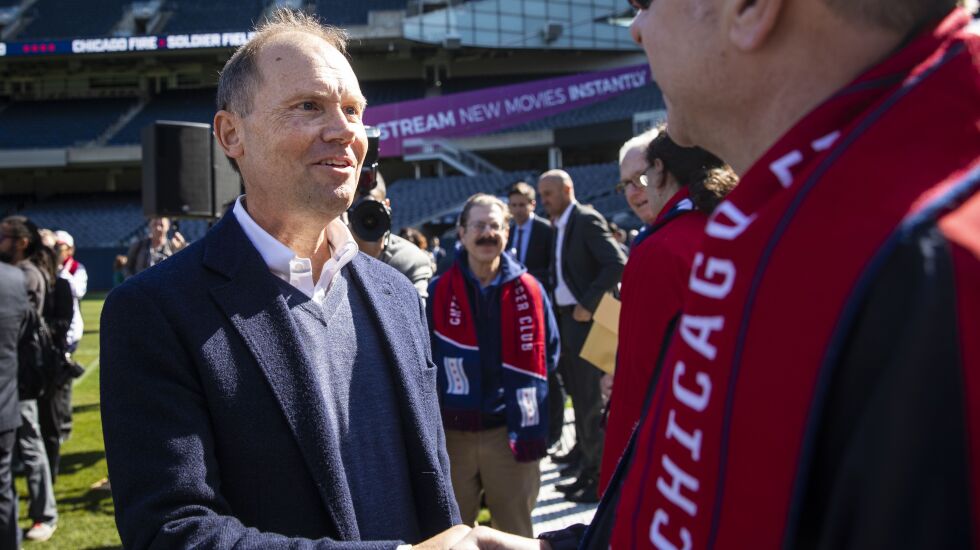
Owner Joe Mansueto explained why the Fire stuck with Arlo White.
“I like Arlo White,’’ Mansueto told the Sun-Times. ‘‘He’s one of the best soccer TV announcers on the planet, and I respect his right to work for whomever he wants to work for. I think that’s a slippery slope, trying to judge countries and evaluate them and determining who you want to have relationships with.”
White recently joined Saudi-backed LIV Golf as its lead commentator. The Saudi government is responsible for numerous human-rights violations, and the nascent tour is seen as an example of sportswashing. That said, relationships with the Saudis or other governments with poor track records are common in sports and geopolitics, including the upcoming World Cup in Qatar.
Mansueto understood the criticism of the decision to stay with White despite his new employer but said “everyone has a right to free speech.”
“It’s fine to criticize, it’s very fair if you don’t like a relationship someone has with a particular country, but I would draw the line at withdrawing employment from somebody because of those relationships,” he said. “Fine to criticize, but to deny somebody employment, I think goes too far. I think you’ll get more traction in changing countries by engaging with them rather than ostracizing them — engaging with them, setting a good example, exposing them to our values rather than trying to shun them, ostracize them and hope they’ll wake up one day and change. That’s my personal view.
“Which countries, which issues, it’s a slippery slope, and in many ways I think sports should be a bit of a safe haven from politics. [There’s] pretty much politics all around us, so that’s really what went into this decision.”
Training facility
The Fire are moving forward with the city to build a new training facility in the Roosevelt Square area of the Near West Side as they work through approvals with the Chicago Housing Authority, the U.S. Department of Housing and Urban Development and the city council.
Mansueto said the team is hopeful the process will be finished by the end of the year.
In June, ProPublica reported on how that land was promised for affordable housing but is now earmarked for the Fire. Mansueto noted that the land has sat vacant and that he didn’t know of any plans to build affordable housing there. He also said the constraint in Chicago is not the land, but the funds to build the housing.
“We’ve relocated, working with the city, all of those affordable housing units to other land that the city has,” Mansueto said. “There’s been no lessening of the number of units of housing.”
He added that the Fire are paying a “premium” to build there and that it would be less expensive to go to the suburbs. Instead, Mansueto said he wants to spur development around the training facility.
“We’re making a significant community-benefit investment,” Mansueto said. “The land needs some remediation, so we’re investing quite a bit, and we think it’s for the good of Chicago.”
Soldier Field
The team’s initial three-year option on Soldier Field is up at the end of the season, and Mansueto said the current plan is to sign on for the next three-year portion. The 11-year pact begins with three three-year segments, then two one-year extensions.
Though Mansueto is pleased with the results and what the move has meant for the fan experience and isn’t looking for land to build a new stadium, the Fire aren’t satisfied with certain aspects of the arrangement. He wants to improve some of the economics, including the high costs of refreshments. Parking is another concern.
“It’s another example of the cost structure that we face,” he said. “We don’t control the parking price, that’s Soldier Field, but it’s an example of maybe other costs that are similarly a little higher than you think they should be.”







